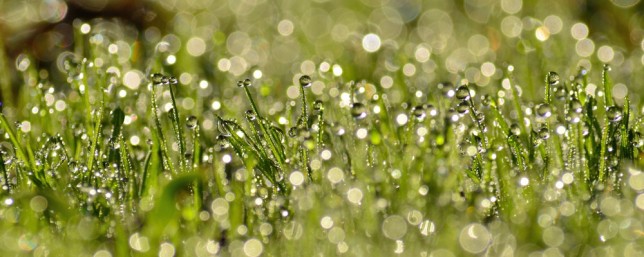Overview
The Department of Plant and Microbial Biology consists of the Division of Plant Biology and the Division of Microbial Biology. Programs at both the undergraduate and graduate levels have been designed to offer students maximum flexibility in defining their own areas of interest. In addition to departmental resources that are available in Koshland Hall, the facilities of the College of Natural Resources Biological Imaging Facility and the United States Department of Agriculture Plant Gene Expression Center are available for the programs of the department.
The Division of Plant Biology
The Division of Plant Biology program emphasizes basic research and its application to plants and promotes the design of plant biotechnologies. With an increasing awareness of environmental problems, global changes, and emerging food needs, plants are a focal point for new research initiatives and educational training programs. Understanding the biology of plants, their development, their responses to the environment, and the impact of human activities on the plant biosphere are many of the challenges that will continue to fuel the expansion of plant biology research well into the 21st century.
The Division of Microbial Biology
The Division of Microbial Biology was established within the department to provide a focus for microbial biology at UC Berkeley. There is a growing awareness that microbes and microbial activities are essential to maintaining a high quality of life for all eukaryotes. Moreover, understanding the microbial world is necessary if we are to comprehend the global ecosystem, evolutionary history, and diversity of life on earth. The 21st century will bring a new understanding of the workings of the global ecosystem and a wealth of new technologies derived from the microbial world. The new microbial biology research programs are designed to meet this challenge.
Undergraduate Programs
Genetics and Plant Biology
: BS
Microbial Biology
: BS
Graduate Programs
The department does not offer graduate degrees; however, the following related graduate degrees are administered by graduate groups affiliated with the department:
Microbiology
: PhD
Plant Biology
: PhD
Faculty
Professors
Steven E. Brenner, Professor. Molecular biology, computational biology, evolutionary biology, bioengineering, structural genomics, computational genomics, cellular activity, cellular functions, personal genomics.
Research Profile
Thomas D. Bruns, Professor. Microbial biology, plant biology, fungi, nucleic acid sequences, basidomycetes, ectomycorrhizal fungi communities.
Research Profile
John D Coates, Professor.
Lewis J Feldman, Professor. Microbial biology, plant biology.
Research Profile
Robert L. Fischer, Professor. Plant and microbial biology.
Research Profile
N. Louise Glass, PhD, Professor. Biotechnology, plant and microbial biology.
Research Profile
Andrew Otis Jackson, PhD, Professor.
Steven E. Lindow, Professor. Microbial ecology, microbial biology, plant biology, plant frost control, bacterial plant diseases, plant disease epidemiology.
Research Profile
Sheng Luan, Professor. Microbial biology, plant biology.
Research Profile
Anastasios Melis, PhD, Professor. Bioenergy, biophysics, biofuels, enzymology, photosynthesis.
Research Profile
Krishna K. Niyogi, PhD, Professor. Genetics, plant and microbial biology, algae, photosynthesis, antioxidants.
Research Profile
Peter Quail, Professor. Plant biology, plant and microbial biology.
Research Profile
Chris Somerville, Professor. Biochemistry, biotechnology, bioenergy, cell biology, biofuels, cell walls, polysaccharides, cellulose, arabidopsis, cellulose synthase.
Research Profile
Shauna Somerville, PhD, Professor. Arabidopsis, cell wall integrity sensing, plant-fungal interactions, plant cell walls, powdery mildew diseases.
Research Profile
Brian J. Staskawicz, PhD, Professor. Biotechnology, plant and microbial biology.
Research Profile
Zinmay Renee Sung, PhD, Professor. Plant biology, plant and microbial biology.
Research Profile
John W. Taylor, PhD, Professor. Evolution, fungi, phylogenomics, mycology, population genomics.
Research Profile
Norman Terry, PhD, Professor. Environmental policy, water resources, plant biology, plant and microbial biology.
Research Profile
Patricia Zambryski, Professor. Microbial biology, plant biology, plant intercellular communication via plasmodesmata, Agrobacterium, bacterial type IV secretion.
Research Profile
Associate Professors
Britt Glaunsinger, PhD, Associate Professor. Virology, gene expression, RNA degradation, herpesvirus.
Research Profile
Arash Komeili, Associate Professor. Bacterial organelles.
Research Profile
Markus Pauly, PhD, Associate Professor. Cell walls, extracellular matrix, plants, polysaccharides, carbohydrates, lignin, nucleotide sugars, analytical carbohydrate chemistry, plant genomics, enzyme biochemistry.
Research Profile
Kathleen R. Ryan, PhD, Associate Professor. Bacterial cell biology and genetics, bacterial cell cycle regulation, two-component signal transduction, cell wall biogenesis.
Research Profile
Chelsea Specht, PhD, Associate Professor. Molecular evolution, adaptation, plant systematics, evolution of development (evo-devo), evolution of form and function, plant morphology, comparative phylogenetics, floral developmental evolution, diversification rates.
Research Profile
Mary Wildermuth, Associate Professor.
Daniel Zilberman, Associate Professor.
Assistant Professors
Michiko E. Taga, PhD, Assistant Professor. Molecular biology, genetics, microbial biology, chemical biology, cofactors, nutrient exchange, microbial communities.
Research Profile
Adjunct Faculty
Barbara J. Baker, Adjunct Faculty. Biochemistry, genetics, signal transduction, plant and microbial biology, biolomolecular mechanisms of plant resistance to microbial disease, plant pathogen recognition, plant resistance to pathogen diseases, tobacco mosaic virus, agriculture and crops.
Research Profile
Jennifer C. Fletcher, PhD, Adjunct Faculty. Molecular biology, genetics, gene regulation, stem cells, plant development.
Research Profile
Igor V Grigoriev, Adjunct Faculty.
Sarah Hake, PhD, Adjunct Faculty.
Frank G Harmon, PhD, Adjunct Faculty.
Janet Jansson, Adjunct Faculty.
Jennifer D Lewis, PhD, Adjunct Faculty.
Sheila Mccormick, PhD, Adjunct Faculty. Molecular biology, genetics, pollen, plant reproduction.
Research Profile
Contact Information
Department of Plant and Microbial Biology
111 Koshland Hall
Phone: 510-642-9999
Department Chair
N. Louise Glass, PhD
371A Koshland Hall
Phone: 510-643-2399; 510-643-2546 (lab)
Fax: 510-642-4995
Associate Chair
Krishna K. Niyogi
371A Koshland Hall
Phone: 510-643-6604; 510-643-6604 (lab)
Fax: 510-642-4995
